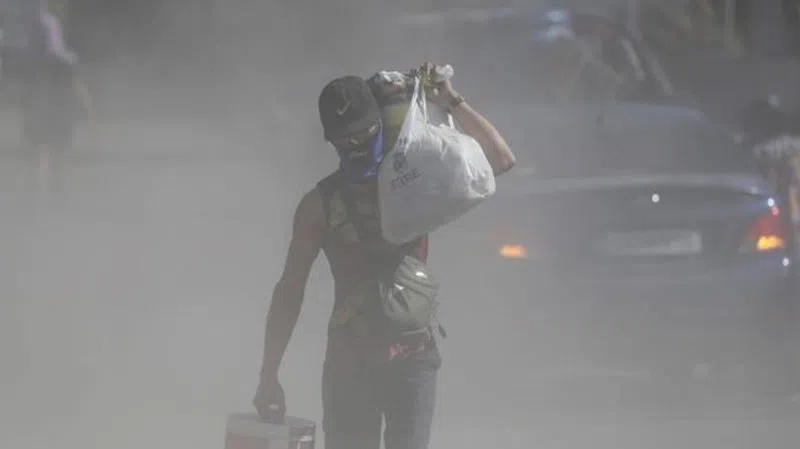
Philippine volcano’s quakes, cracks send more people fleeing
LEMERY, Philippines — A Philippine volcano belched smaller plumes of ash but shuddered continuously with earthquakes and opened cracks in roads Thursday as police blockaded at-risk towns due to fears of a bigger eruption.
A crater lake and nearby river have dried up in signs of the Taal volcano’s continuing restiveness, and officials have warned people against speculating the five-day eruption is waning. Soldiers and police blocked villagers from sneaking back by boats to the volcanic island and nearby towns to retrieve belongings, poultry and cattle.
Many houses and farms have been damaged by volcanic ash since the eruption started Sunday, though no deaths or major injuries have been reported after tens of thousands of people evacuated. The volcano in Batangas province lies more than 65 kilometres (40 miles) south of the capital, Manila.
Amid warnings of an imminent and more dangerous eruption, police cordoned off at least four towns along or near the coast of a lake surrounding volcano island, sparking arguments with villagers.
